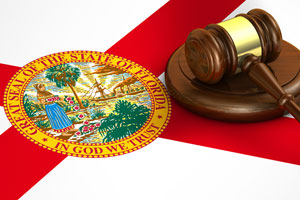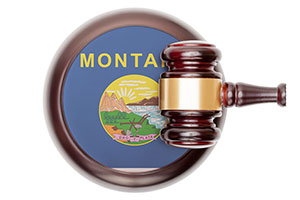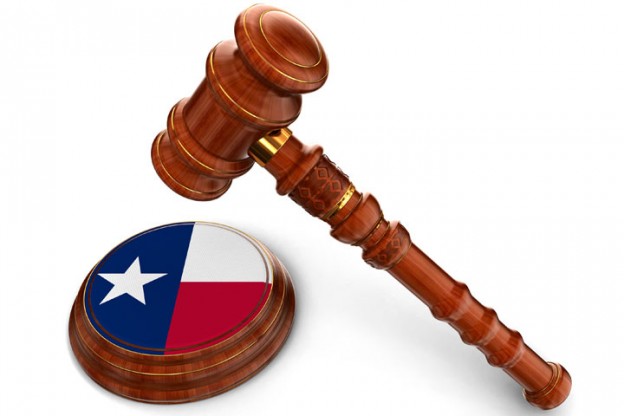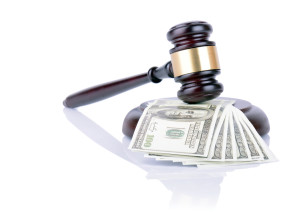Bryan Gutierrez died three months before his second birthday. Efforts to revive him after he stopped breathing were futile. A paramedic eventually used forceps to extract a wad of paper towels, about the size of an egg, from his throat. By that time, however, his brain had been deprived of oxygen for too long. His body was kept alive for another three months, but he suffered brain death.
Suspecting that a toddler could not have ingested such a large mass of paper towels on his own, police officers interrogated Rosa Jimenez, who was babysitting Bryan at the time of his death. Jimenez was caring for her own son while she babysat Bryan.
Jimenez told the police that she used paper towels to wipe the noses of both boys after they woke up from a nap. The boys then started rolling paper towels into balls and throwing them at each other. Jimenez told them to stop, then went into the kitchen to make lunch.
Bryan soon entered the kitchen in distress. He appeared to be choking on something. Jimenez could not find anything in his mouth. Slapping him on the back had no result, so she rushed him to a neighbor for assistance. The neighbor called 911.
The officer who interrogated Jimenez pressed his own theory, telling her that she must have wanted a few moments of peace and stuffed paper towels into Bryan’s throat to silence him. Jimenez protested that she loved Bryan like her own son and insisted that the officer’s version of events was false. After five hours of intense interrogation, Jimenez was released, only to be arrested in her home at 11:00 p.m.
Unfair Trial
Jimenez was charged with injury to a child. Despite the absence of any physical evidence suggesting that Jimenez had abused Bryan, a jury found her guilty. In 2005, Jimenez was sentenced to 99 years in prison.
Since then, at least four judges have questioned the fairness of Jimenez’ trial. A Texas Monthly investigation notes that each time Jimenez was granted a new trial, Texas prosecutors appealed, causing the verdict and sentence to be reinstated.
Federal Magistrate Judge Andrew Austin is one of the judges who recommended a new trial. When the case came before him for a second hearing, Magistrate Austin noted that Jimenez received “a very infirm trial and that there is likely an innocent woman who is sitting in a jail for seventeen years.”
It isn’t unusual for innocent defendants to spend many years behind bars before the slow-moving judicial system corrects the errors that caused their wrongful convictions. Delay is particularly tragic in Jimenez’ case, however, because she suffers from stage-four chronic kidney disease. She is likely to die in prison if her appeal is not expedited.
The state is doing everything it can to delay a final decision in Ms. Jimenez’ case. Its apparent strategy is to run out the clock, allowing her to die so that the unjust conviction it obtained will never be exposed.
Prosecution’s Expert Evidence
In the absence of an eyewitness or any physical evidence suggesting a crime had been committed, prosecutors attempted to prove that a boy as young as Bryan could not have stuffed paper towels so far down his throat. Since Jimenez was the only adult present, the prosecution theorized that she must have done it.
Prosecutors relied on four expert witnesses to make its case. The ER doctor who treated Bryan testified that his gag reflex would have pushed the wad of paper out of Bryan’s mouth if it had not been forced down his throat.
A pediatric ICU doctor echoed the ER physician’s testimony and expressed the opinion that there was “no way” Bryan could have placed the paper towels in his mouth by himself. She testified that Bryan must have been forcibly held down, despite the absence of any bruises that would have supported that testimony.
A forensic pathologist testified that Bryan’s throat was too narrow to ingest the paper towels voluntarily. A pediatrics and child-abuse specialist testified that Bryan’s death was not accidental. All of that expert evidence seems to be based on speculation rather than scientific studies.
Defense Evidence
The defense pointed out Jimenez’ DNA was not found on the paper towels. The defense also argued that the untrained officer who first arrived on the scene may have forced the paper towels farther into Bryan’s throat while attempting to administer CPR.
The defense called witnesses who testified that Jimenez was a good babysitter who never lost her temper. The defense also emphasized that Jimenez had no motive to harm Bryan.
The defense wanted to call its own expert witness, but two potential witnesses declined. One was still owed a fee for testimony provided in an earlier case; the other thought the fee that Jimenez’ court-appointed lawyer offered was insufficient.
The defense retained Ira Kanfer, a Connecticut medical examiner. He regarded the lack of trauma on Jimenez’ face as evidence that the choking was accidental. But Kanfer had no pediatric training and did not belong to any forensic science organizations. He apparently formed his opinions by printing out articles he found on the internet.
Kanfer also testified that a toddler could wad up paper towels and swallow them, particularly if they were wet. There was evidence that Bryan had a history of throwing paper into the toilet.
Kanfer lost his cool after a cross-examination questioned his credentials. During a break in his testimony, he confronted the prosecutor in the hallway and made a rude remark to her. She questioned him about the remark when he resumed his testimony. Whether the judge would have deemed the remark to be relevant is unclear since defense counsel did not object to it.
After the Trial
A filmmaker who covered Jimenez’ case is convinced of her innocence. Jimenez was a poor Mexican who did not have immigration documents. The filmmaker suspected that the jury would never have convicted a white middle-class woman on the basis of such flimsy evidence.
The documentary caused a stir in Mexico that eventually prompted the Mexican government to fund Jimenez’ defense. New lawyers located Dr. Karen Zur at the Children’s Hospital of Philadelphia. Dr. Zur is the associate director of the Center for Pediatric Airway Disorders. Dr. Zur reviewed the evidence and swore in an affidavit that the size of the paper towel wad was not inconsistent with accidental choking. She also explained that the gag reflex could actually result in paper towels being pulled deeper into the throat.
Three other experts, including another pediatric otolaryngologist, a critical care surgeon, and a forensic pathologist, all agreed that it was possible for a toddler to accidentally swallow the paper towels. The otolaryngologist explained that he had removed a wad of bread of a similar size from the throat of a 28-month-old child.
The forensic pathologist had conducted autopsies on children who choked to death. He testified that it is not unusual for children to place a large wad of paper towels in their mouth. He faulted the prosecution experts for basing opinions on speculation rather than medical science.
Defense Lawyers Must Identify Effective Expert Witnesses
Had Jimenez’ defense lawyer called an expert in pediatric otolaryngology — an expert with appropriate credentials who would not have been so easily flustered on the witness stand — the trial outcome might have been different. Unfortunately, publicly funded defense lawyers in states like Texas are unable to match the resources available to prosecutors.
Politicians are typically more willing to fund experts for prosecutors than for the defense, while pro-prosecution judges are skeptical about paying defense experts the fees that they deserve. The scales of justice are thus rigged to favor the prosecution.
Child abuse justifiably makes people angry. Some prosecutors seize upon that anger to convince juries to base verdicts on their emotions rather than the facts. An evidence-based appeal to rationality is the only strategy that counters that emotion. The strategy begins by identifying and finding a way to fund the right expert witness.
Jimenez’s trial attorney testified that he informally asked the trial judge for more funding, a claim that the judge denied. The lawyer now acknowledges that he should have placed his request in writing. Whenever a verdict in a court-appointed case may turn on expert evidence, lawyers need to make a written record of the need for a qualified expert witness and of the reasons a defendant will be deprived of the right to a fair trial without one.












